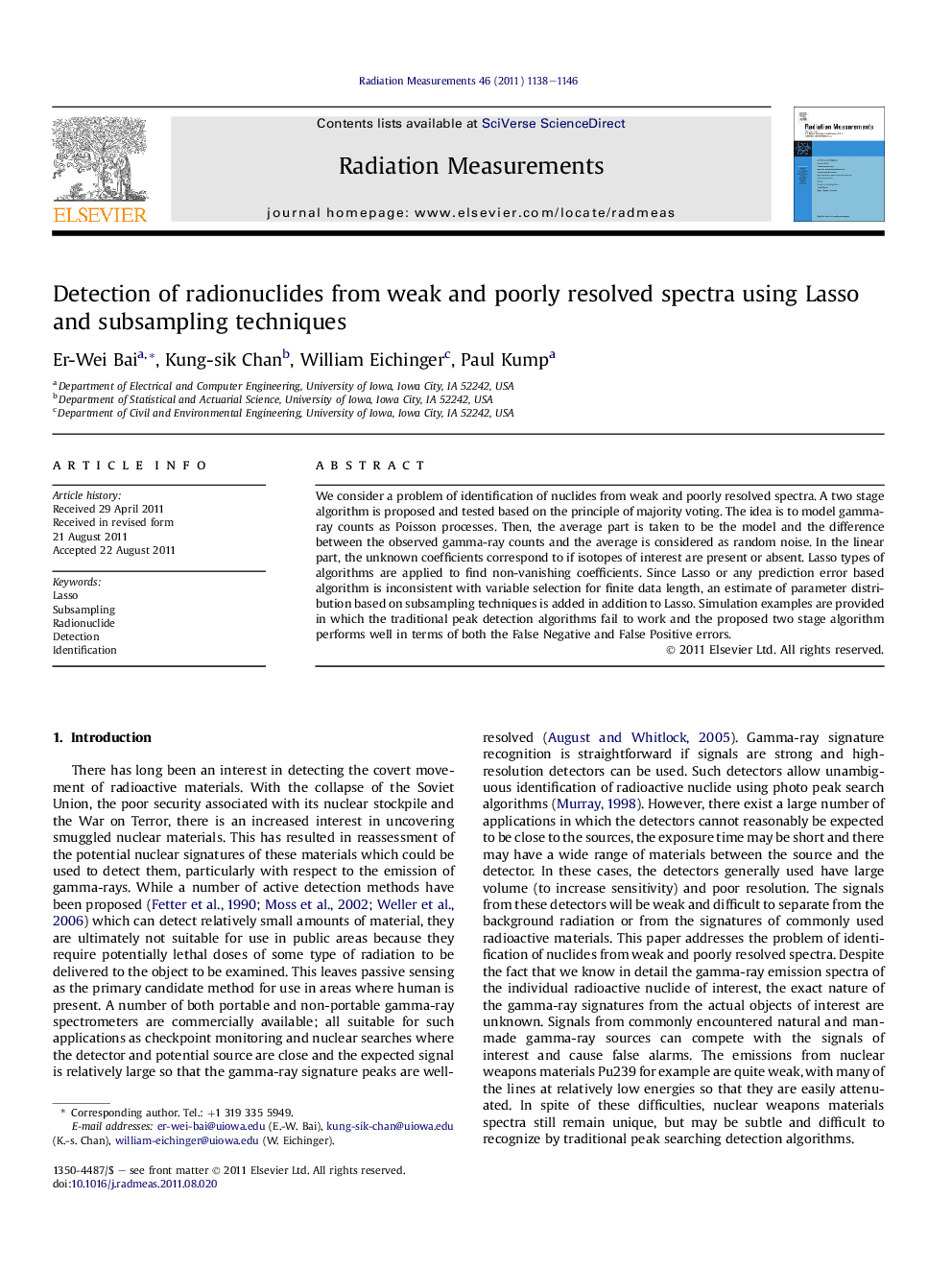| Article ID | Journal | Published Year | Pages | File Type |
|---|---|---|---|---|
| 1880914 | Radiation Measurements | 2011 | 9 Pages |
We consider a problem of identification of nuclides from weak and poorly resolved spectra. A two stage algorithm is proposed and tested based on the principle of majority voting. The idea is to model gamma-ray counts as Poisson processes. Then, the average part is taken to be the model and the difference between the observed gamma-ray counts and the average is considered as random noise. In the linear part, the unknown coefficients correspond to if isotopes of interest are present or absent. Lasso types of algorithms are applied to find non-vanishing coefficients. Since Lasso or any prediction error based algorithm is inconsistent with variable selection for finite data length, an estimate of parameter distribution based on subsampling techniques is added in addition to Lasso. Simulation examples are provided in which the traditional peak detection algorithms fail to work and the proposed two stage algorithm performs well in terms of both the False Negative and False Positive errors.
► Identification of nuclides from weak and poorly resolved spectra. ► An algorithm is proposed and tested based on the principle of majority voting. ► Lasso types of algorithms are applied to find non-vanishing coefficients. ► An estimate of parameter distribution based on sub-sampling techniques is included. ► Simulations compare the results of the proposed method with those of peak detection.
